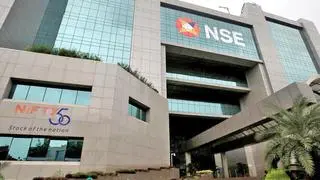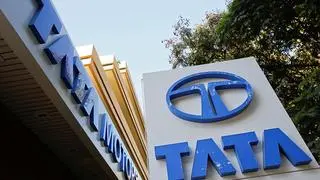There is a lot of talk about the 260-odd NPA (non-performing asset) cases that have been given the go-ahead by the National Company Law Tribunal under the Insolvency and Bankruptcy Code, 2016 for resolution. But the IBC does not deal with insolvent and stressed companies alone; solvent companies, too, can wind up their business under the IBC.
Currently, there are 27 companies that have filed for voluntary liquidation under the IBC. These are companies that are capable of settling all their dues in full and are keen on winding up business due to other reasons.
In the moneyAccording to the IBC regulations, a company wanting to trigger the voluntary liquidation process has to obtain a declaration from a majority of partners in the case of a limited liability partnership, or directors, in the case of a company, stating that the company has no debt or that it will be able to pay its debts in full from the proceeds of assets to be sold in the liquidation.
In other words, only a healthy or solvent company with no debt, or capable of paying back its debt, can file for liquidation.
“These companies decide to close down not because they are insolvent but because they do not want to carry on their business. They, in fact, have to certify that they are solvent and capable of settling claims before filing for liquidation,” says Rakesh Nangia, Managing Partner, Nangia & Co.
Within four weeks of such a declaration, a resolution by a majority of partners or directors is required to be passed to go ahead with the liquidation process and appoint an insolvency professional.
If the company does have debt, then creditors representing two-thirds in value of the debt of the company have to approve the resolution within seven days. The liquidator then asks creditors to submit their claims, which are settled by liquidating the assets of the company.
“Mostly, companies will have easy assets such as stocks, cash in the bank or other financial investments that are not difficult to sell. These businesses will not be active in most of the cases and hence liquidating the business will not be a tall task,” says Vinod Kothari, a financial and legal consultant and insolvency professional. Of the 27 cases that have filed for voluntary liquidation, Kothari is an insolvency professional in two cases — Thea Jewels Private Ltd and IL&FS Capital Advisors.
The surplus, if any, after settling creditor’s dues is distributed to the shareholders. “After the claims are settled, a final meeting of shareholders is called. The insolvency professional then applies to the NCLT for dissolution of the company,” says Kothari.
No delay in approvalUnless the NCLT finds any valid objection or irregularity, the cases are likely to be approved without delay.
Between April and now, 27 cases have been filed for voluntary liquidation. Ujjivan Social Services Foundation, which was a group company of Ujjivan Financial Services, is among the list.
According to Samit Ghosh, MD and CEO of Ujjivan Small Finance Bank, “The company was set up to do banking correspondent business when we were an NBFC. Now that we are a small finance bank, we have decided to close it. In any case we never did any business under the company.”
Under IBC, the process to wind up has become easier for companies wishing to do so. Earlier such cases came under the purview of the Companies Act, under which winding up was a long-drawn process.
“Under the earlier Companies Act, 1956, the process was court-based, involving the interference of the official liquidator. That delayed the process, naturally demotivating people from winding up companies, even though they (the companies) were not needed any more.
“In nearly 30 years of our business, we have hardly handled any voluntary liquidation case. Now the process is far simpler under the IBC. We don’t need to approach the courts or involve the so-called official liquidator,” says Kothari.








Comments
Comments have to be in English, and in full sentences. They cannot be abusive or personal. Please abide by our community guidelines for posting your comments.
We have migrated to a new commenting platform. If you are already a registered user of TheHindu Businessline and logged in, you may continue to engage with our articles. If you do not have an account please register and login to post comments. Users can access their older comments by logging into their accounts on Vuukle.